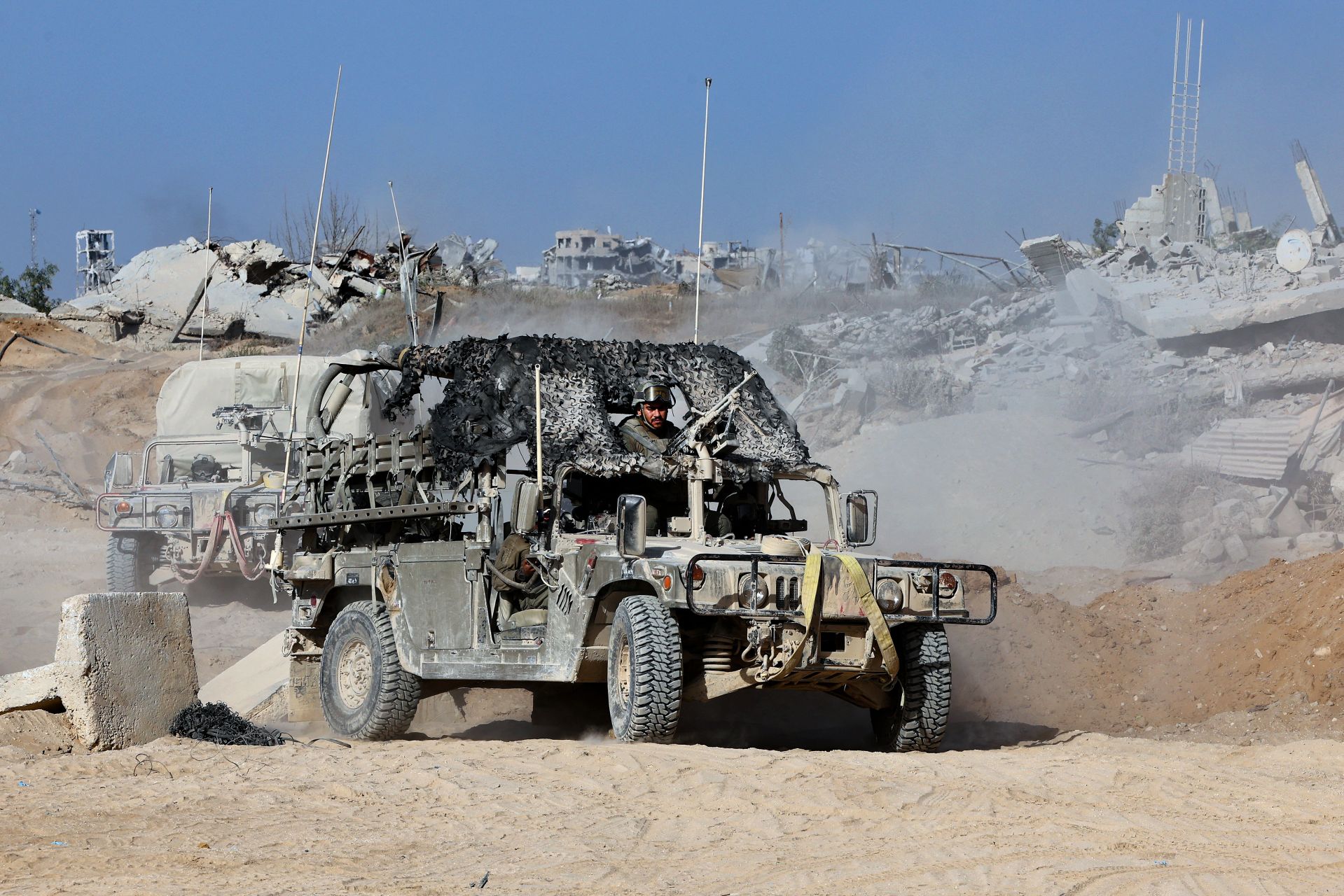- Home
- Middle East
- Gaza: Paris Meeting on Post-War Plans Sparks Israeli Anger

This picture taken during a media tour organised by the Israeli army on October 3, 2025, shows Israeli army soldiers riding military vehicles in front of war-destroyed buildings in the vicinity of the Jordanian Field Hospital in Gaza City.
A meeting scheduled for Thursday in Paris, bringing together European and Arab foreign ministers to discuss “modalities for a collective post-war engagement” in the Gaza Strip, has already drawn Israel’s ire, which denounces it as “an attempt to internationalize the conflict.”
“This meeting represents a new step in France’s long-standing efforts to end the war in Gaza and open a path to peace,” a French diplomatic source said, noting that the agenda will focus on post-war priorities such as security, governance, and reconstruction.
However, Israeli Foreign Minister Gideon Saar criticized the initiative, saying that “France’s new initiative, at such a sensitive moment in the Sharm el-Sheikh negotiations, is unnecessary and harmful” in a post on X.
Negotiations are ongoing this week in Egypt to achieve a ceasefire in the small territory ravaged by two years of conflict between Hamas and Israel.
Thursday’s Paris meeting will include ministers from the “European Quint” (Germany, Spain, France, Italy, and the United Kingdom) and the “Arab Quint” (Saudi Arabia, Egypt, the UAE, Jordan, and Qatar), as well as representatives from the European Union, Canada, and Turkey. According to French diplomatic sources, the goal is to “show support” for the ongoing talks based on the peace plan proposed by U.S. President Donald Trump.
Shortly before Saar’s statement, U.S. Secretary of State Marco Rubio’s participation was canceled, officially due to logistical reasons.
Israeli Concerns
For Israel, the meeting is “another attempt by President Macron to divert attention from his domestic problems at Israel’s expense,” Saar said, referring to the political crisis triggered by the surprise resignation of French Prime Minister Sébastien Lecornu on Monday.
Saar emphasized that “participants may discuss what they want, but no agreement in Gaza can be concluded without Israel’s consent. Nothing will be decided about Israel without Israel. Israel will not accept the internationalization of the conflict.”
Italian Foreign Minister Antonio Tajani, however, described Thursday as “an important day,” noting that Italy is “ready to participate in the post-war political process for the reconstruction and reunification of Palestine.” An Italian diplomatic source added that Trump’s plan is “the only viable option.”
Announced on September 29, the U.S. plan calls for a ceasefire, the release of hostages in Gaza within 72 hours, a phased Israeli withdrawal, and the disarmament of Hamas. Italy is also reportedly ready to contribute to the proposed International Stabilization Force, including deploying Carabinieri to train new police forces in Gaza and the West Bank, where they are already present.
Coordinated Action
German Foreign Minister Johann Wadephul stressed the need for coordinated action. “Many states are ready to engage to ensure the U.S. peace plan succeeds and that hope for peace becomes a reality,” he said. “Gaza must no longer pose a threat to Israel, and its residents urgently need not only humanitarian aid but also political and economic prospects.”
The meeting continues the Franco-Saudi initiative supporting a two-state solution, which led to last summer’s New York declaration and “facilitated the adoption of the U.S. plan,” French diplomatic sources explained.
Israel, however, is particularly displeased with the invitation of governments it considers “openly hostile,” such as Spain under Pedro Sanchez, calling it “particularly unacceptable.”
The French Foreign Ministry declined to comment on these criticisms when approached by AFP.
AFP
Read more



Comments